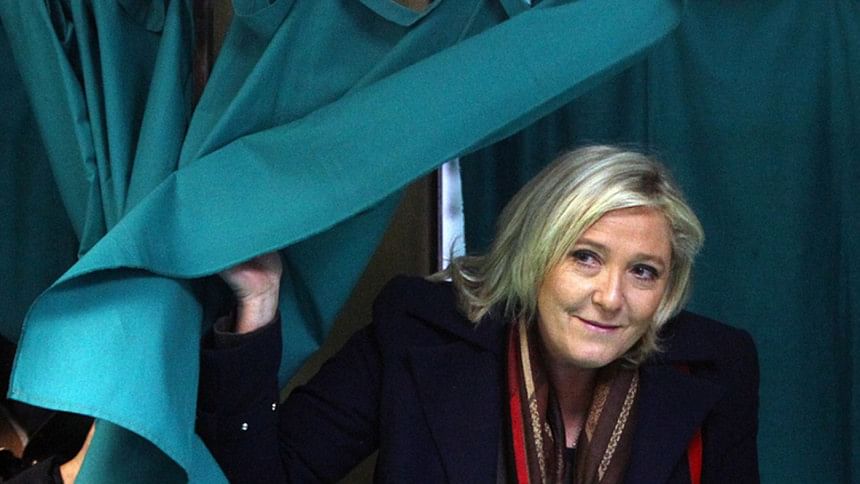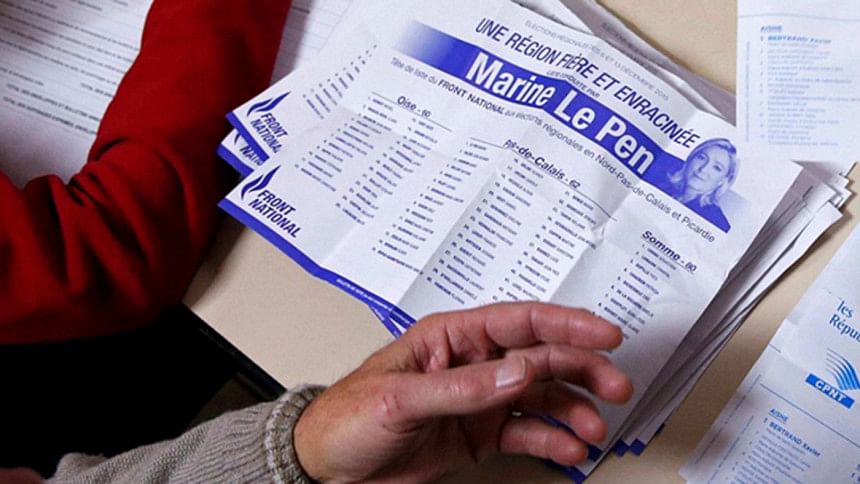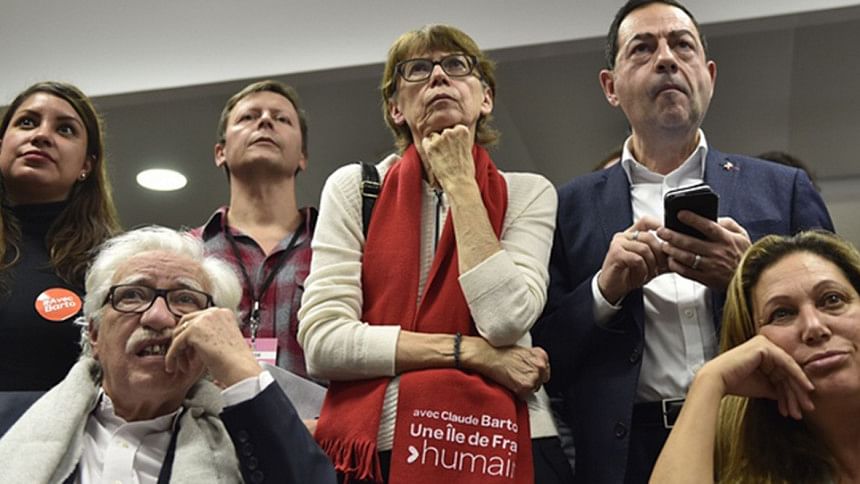French far right National Front routed in key vote

France's far-right National Front (FN) has failed to win a single region in the second round of municipal elections, preliminary results show.
They indicate that the party has been beaten into third place, despite leading in six of 13 regions in the first round of voting.
Nicolas Sarkozy's centre-right Republicans are set to win most seats ahead of the ruling Socialists.
Acknowledging defeat, FN leader Marine Le Pen pledged to keep fighting.
And she blamed the outcome on the mainstream parties which joined forces to keep the FN from power, telling her supporters they had been "disenfranchised in the most indecent of ways by a campaign of lies and disinformation".
Marine Le Pen stood as a regional presidential candidate in the northern region of Nord-Pas-de-Calais-Picardie, while her niece Marion Marechal-Le Pen was the FN's candidate in the race in Provence-Alpes-Cote d'Azur, in the south.

After both led with more than 40% of the vote in the first round on 6 November, the Socialist candidates in those regions pulled out so their voters could support Republican candidates against the FN in the second round.
Marine Le Pen secured 42.2% of the vote in the second round in her region against the centre-right's 57.8%, French media report.
Marion Marechal-Le Pen took 45.2%, compared with 54.8% for her Republican rival.
Despite the defeat, the 26-year-old urged FN supporters to "redouble our efforts".
"There are some victories that shame the winners," she said.
Xavier Bertrand, Republican regional presidential candidate in Nord-Pas-de-Calais-Picardie, said the French had given "a lesson of rallying together, courage. Here we stopped the progression of the National Front".
But Socialist Prime Minister Manuel Valls was less upbeat. He warned the "danger posed by the far right has not gone away, far from it".

And Sarkozy said now was the time "for in-depth debates about what worries the French", noting security concerns, unemployment and frustration with the European Union.
These elections were to vote for councils and presidents of the 13 French regions, which have wide powers over local transport, education and economic development.
French media are predicting that the Republicans have taken seven regions and the Socialists five, with nationalists winning Corsica. Final official results are expected later on Monday.
One of the biggest upsets happened in the Paris region, Ile-de-France, which shifted from the Socialists to the Republicans for the first time in nearly 20 years.
The first round of voting on 6 December gave the FN the best election results in its history.
It was the first electoral test since the 13 November Paris attacks, in which 130 people were killed - an attack claimed by the so-called Islamic State group.
In the lead-up to the first round, opinion polls suggested that the popularity of the anti-immigration, anti-EU FN had increased since the deadly attacks.
The FN had been hoping a strong performance would boost Marine Le Pen's chances in the 2017 presidential election.

 For all latest news, follow The Daily Star's Google News channel.
For all latest news, follow The Daily Star's Google News channel. 








Comments